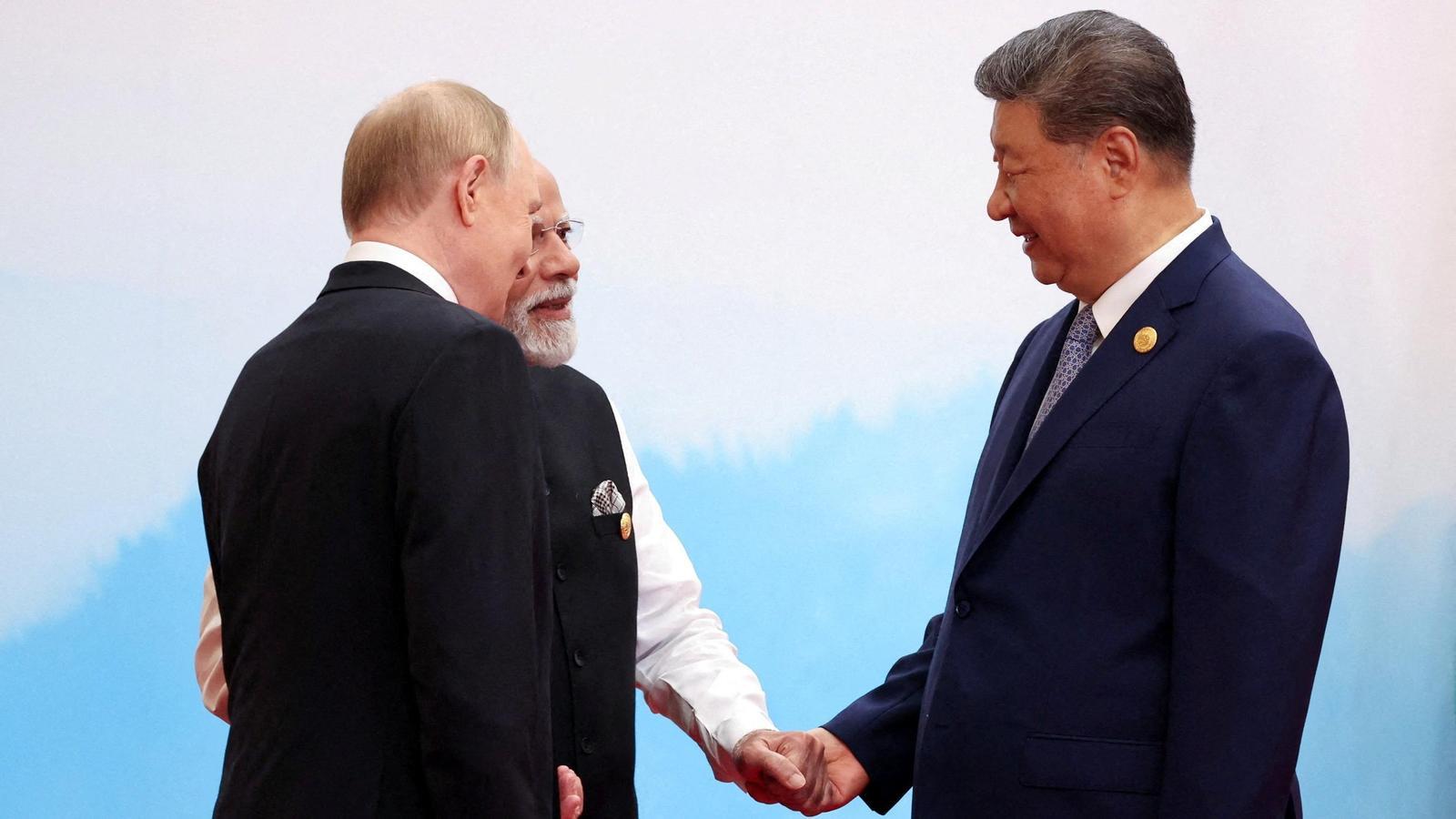

Our great historian Josep Fontana liked to quote a phrase from the German satirist Karl Kraus: "May God preserve communism for us forever, so that the capitalist rabble does not become more shameless and so that, at least, they have nightmares when they go to sleep." Fontana used it to shock consciences and point out a counterintuitive historical pattern: as the economist Thomas Piketty demonstrated in his analysis of capital in the 20th century, if we look at the economic evolution of the world after the fall of the Berlin Wall, we see that inequalities reached an all-time low in the 1970s. Well, this week, as we saw the photograph of Xi Jinping, Vladimir Putin, and Narendra Modi, I can't help but wonder what Fontana would say about this new Cold War in which capitalism must not lose a single minute of sleep because of any ideological enemy.
In the arc that goes from the war in Ukraine to the humiliating trade capitulation signed by the European Union this summer, it has become clear that Europe is completely subordinated to the United States, without any negotiating strength or strategic autonomy. After decades of self-destructive austerity, we have stopped investing in productive technologies and innovation and have lowered wages by becoming dependent on both American consumers and their military umbrella without developing any muscle of our own. In this context, the message we receive from the EU with its glum expressions seems reasonable: we have been living on borrowed time, and now it's time to pay the bill by cutting rights and social protections.
But I can't help but travel back to a not-so-distant past and compare. During the first Cold War, military spending in the United States and Europe represented a much higher percentage of GDP than both what we've invested in recent decades and the goals now being demanded and presented to us as draconian. And yet, it was precisely during these years that all the institutions of the welfare state were created, and prosperity and equality continued to grow. And this with a threat of nuclear conflagration much worse than today's. How can it be that a geopolitical competition infinitely more ruthless than today's could be compatible with an increase in historical social well-being?
With Fontana's reading, we see that not only were both compatible, but that this competition was precisely the engine of equality. Because although the current system seems like an unreformable cage, the truth is that social models only endure as long as someone believes in them, and things can turn around very quickly. In fact, there's no better example of the weight of faith and narrative in politics than the fall of Soviet communism, which collapsed not because of a French-style revolution, but when people compared reality with rhetoric and stopped believing the official narrative. Ironically, the strongest argument for the potential effects of an ideological alternative to capitalism is precisely the logic that capitalism itself defends: isn't it the doctrine of the free market that warns us that a product that knows it shouldn't suffer from competition inexorably degrades?
The big difference between the new Cold War and the previous one is the lack of ideological competition that has left the hole in communism in particular and the left in general. On both sides are democracies like the United States and India, and dictatorships like China and Russia, but everyone agrees on returning to the model of 19th-century empires, with spheres of influence and clashes of civilizations, a system in which each superpower claims a zone with a set of vassal states and unites its enemy citizens, who supposedly hold values that make us eternally incompatible. In the absence of any universalist and cooperative proposal for the majority, a competitive particularism prevails that only benefits the respective elites. With one imaginary, states must compete to offer the fairest model to their citizens; with the other, for who squeezes them the most.
Europe is the last remaining space of the convictions with which an alternative could be reconstructed, and right now it faces the dilemma of becoming a colony of the United States or radically transforming toward autonomy. Naturally, taking one path or the other will depend greatly on the visions we are able to circulate and around which we organize ourselves. For all these reasons, now that the arguments are being sharpened to justify many social and political cuts in the name of a new Cold War, I think it's especially useful to remember that the last time a global confrontation occurred, the threat of a credible idea of equality was enough for all-powerful capitalism to offer the most powerful version. Behind any political decision disguised as realism, it is always necessary to look for what ideas exist, and which ones are conspicuously absent.
